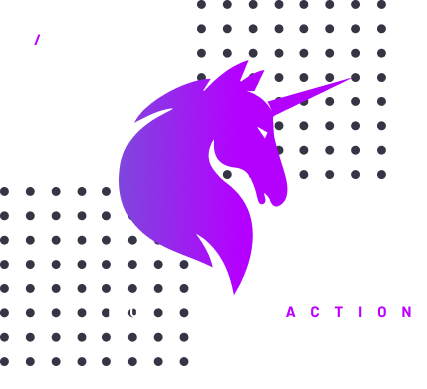From Construction Boots to Louis Vuitton Shoes: The Universal Need for Appreciation
10 July 2025
My article: From Construction Boots to Louis Vuitton Shoes: The Universal Need for Appreciation – And Why It Matters More than Ever first appeared on Dr. Paul White’s Newsletter.
Imagine stepping into work each day, whether laced up in rugged construction boots or slipping into sleek Louis Vuitton heels. The footwear may differ, but the common thread among all individuals remains the same—we want to feel seen, valued, and appreciated.
Appreciation isn’t a luxury reserved for special occasions or high-level executives; it’s a fundamental human need that transcends industries, roles, and titles. Whether in finance, education, healthcare, tech, non-profit or construction, the desire for meaningful recognition is universal. And when appreciation is expressed genuinely, the effects ripple through teams, igniting engagement, boosting morale, and strengthening workplace culture.
After more than a decade as a Premiere Partner and Certified Trainer with Appreciation at Work, and working with all the different sectors, I’ve seen firsthand how a simple, heartfelt acknowledgment can transform an individual’s mindset—and, in turn, an entire organization. The question is no longer if appreciation matters; it’s how we can harness its power to create thriving workplaces where people bring their best selves forward.
In addition to my expertise in appreciation, I am a DISC Certified Human Behaviour Consultant, which provides a deeper understanding of how personality and behavioural tendencies shape workplace interactions. DISC assessments offer invaluable insights into behaviour patterns, helping individuals recognize their own tendencies and those of others. While they do not predict behaviour with absolute certainty, they serve as powerful frameworks for fostering collaboration and teamwork.
Appreciation in the Workplace VS DISC
Interestingly, Dr. Paul White’s research has shown that there is no correlation between DISC personality styles and the Languages of Appreciation. These two assessments complement rather than predict one another, allowing a more holistic approach to workplace culture. (See footnote for links to research articles and blogs.)
Whether you’ve worked with DISC, Myers-Briggs, or other personality assessments, my perspective is that these modalities help us understand the “brain” of a person—their thinking patterns and behavioural tendencies. However, true workplace transformation comes when we also understand the “heart” of an individual. That’s where The 5 Languages of Appreciation in the Workplace come into play. When we tap into what truly makes a person feel appreciated, we unlock their highest potential.
People cannot transform their relationships until they become aware of what affects and nurtures them. Appreciation at Work is simple to understand yet deeply impactful. Once participants experience, demonstrate, and reflect on appreciation, they begin to recognize why certain relationships have thrived or faltered. More importantly, they gain the ability to intentionally create a culture of appreciation.
Appreciation isn’t just about identifying a preferred language—it’s about recognizing the subtle nuances that make a difference. A well-intended gesture can be deeply meaningful, but if it doesn’t align with an individual’s values, even the best of intentions may miss the mark or trigger frustration. When appreciation is expressed effectively, the ripple effect is undeniable.
Appreciation fosters a sense of safety
In today’s uncertain times, stress and anxiety run high, and the brain becomes agitated, causing individuals to struggle with their best behaviour. Feeling appreciated, seen, and valued helps the brain release calming chemicals like oxytocin and serotonin, which lower stress hormones and activate the parasympathetic nervous system. Appreciation fosters a sense of safety, soothing the nervous system and supporting emotional resilience. When employees feel less stressed and valued, they naturally go above and beyond—not just for their employer, but for their colleagues, their team, and the organization as a whole.
If you’ve hesitated to invest in an appreciation session for your team, now is the perfect time to do so. Whether conducted in person or virtually, these sessions foster connection, boost morale, and strengthen workplace relationships.
Regardless of whether people walk through life in construction boots or designer heels, I have seen their eyes light up—or even tear up—after these sessions. Because at the end of the day, feeling appreciated isn’t a luxury. It’s a necessity.
Caroline Rochon Biography
Caroline Rochon is a bilingual International Speaker, Transformational Trainer, DISC Certified Human Behaviour Consultant – In association with Personality Insights, Inc., Success Coach, Professional Organizer, Certified Facilitator and Premiere Partner with Appreciation at Work™. She is dedicated to inspiring and empowering individuals and groups so that they can achieve their goals and fulfill their dreams. She was trained by Jack Canfield (co-author of the Chicken Soup for the Soul® Series and the Success Principles™) on how to facilitate individual and group transformation. Caroline’s journey since leaving the corporate world in 2007 has been filled with realized dreams, challenges met with perseverance and courage, and opportunities transformed into achievements. In 2013, Caroline had the pleasure and honour of being among a list of top international speakers presenting in Mexico. TEDx speaker in 2012 in India, winner of the “Self Employed Entrepreneur of the Year” award in 2010. Caroline is a multifaceted personality as a television and radio columnist and content writer. She is a Bestselling Author and is passionate about inspiring people with her writing. Let yourself be transformed by Caroline’s passion and authenticity! (https://carolinerochon.com)
Research published By Paul White, Ph.D. in article from Training – The Source for Professional Training
The Relationship Between The DISC Personality Assessment And The 5 Languages Of Appreciation https://www.appreciationatwork.com/wp-content/uploads/2016/12/Relationship-between-DISC-5LAW.pdf
Dr. Paul White’s Blogs:
Myers-Briggs and the 5 Languages of Appreciation might be related? (https://www.appreciationatwork.com/blog/how-personality-type-and-languages-of-appreciation-interrelate/)
Improve Employee Engagement by using the DISC assessment and the 5 Languages of Appreciation (https://www.appreciationatwork.com/blog/improve-employee-engagement-using-disc-assessment-5-languages-appreciation/



